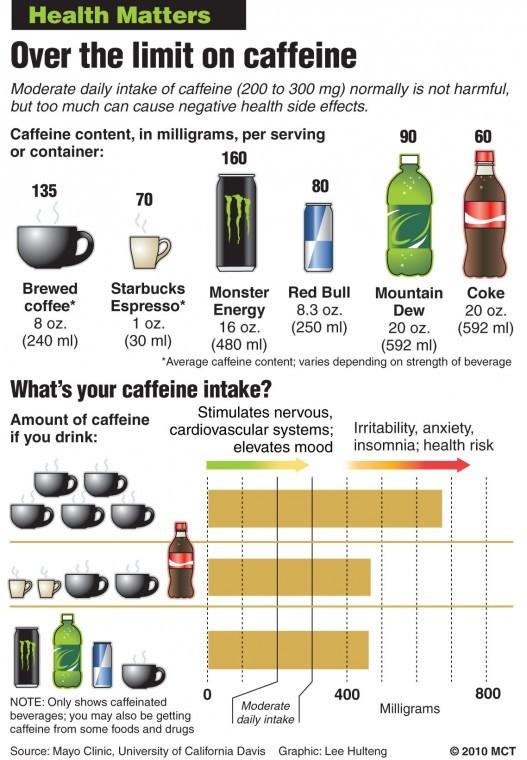Students can be healthier without caffeine overload
May 2, 2012
College students tend to struggle with finding a healthy lifestyle. They are constantly on the go and many depend on caffeine and high levels of sugar to get through the day.
Fast food, energy drinks and coffee seem to be the norm amongst most students nowadays. With several hours of studying and working, it’s hard to find time for a healthier meal.
Poor eating habits play a psychological role for students. Drinks containing high sugar will eventually affect stress and intellectual performance.
Working and studying long hours is stressful. There is no reason why students should add another burden.
“Poor eating habits can certainly intensify stress,” said Shauna Schultz, nutritionist at Sacramento State Student Health Services. “Food and mood are intricately connected, which means what you eat can affect your mood and your mood can affect your food intake. Food provides nutrients, which also provide building blocks for every cell in your body.”
Meal planning is important for every college student. If students come up with a game plan for their meals they can make smarter, healthier choices. This can also lead to reducing stress and maximizing one’s ability to focus.
Breakfast, lunch and dinner with small snacks in between meals are a must. There isn’t a time a person should miss one of the three. People also need to pay close attention to the quality of their meals and not just eat junk food filled with fat.
“Balance meals with fruits, vegetables, lean proteins and whole grains,” Schultz said.
Surely caffeine from energy drinks and coffee helps make people more alert for a short time, but in the long run people will start to crash.
“Energy coming from energy drinks and coffee is lost in a quick fix,” said Kevin Mackey, administrative support coordinator at Sac State. “With natural energy, people tend to do more work. That’s what our body is supposed to be built for. Our bodies aren’t built for energy drinks. It doesn’t really last as long as what people think.”
Over the course of a day, drinking heavy amounts of caffeine becomes counter-productive.
“The 300 milligrams is a suggested limit, which can still vary from person to person depending on their sensitivity to the effects on caffeine,” Schultz said.
A person can always find a way to stay healthy without being dependable on caffeine to do his or her job.
Bottom line is, people should quit making excuses. Students should get enough sleep and put themselves in the best frame of mind to succeed in college.
Chris Barbosa can be reached at [email protected]





























































































































